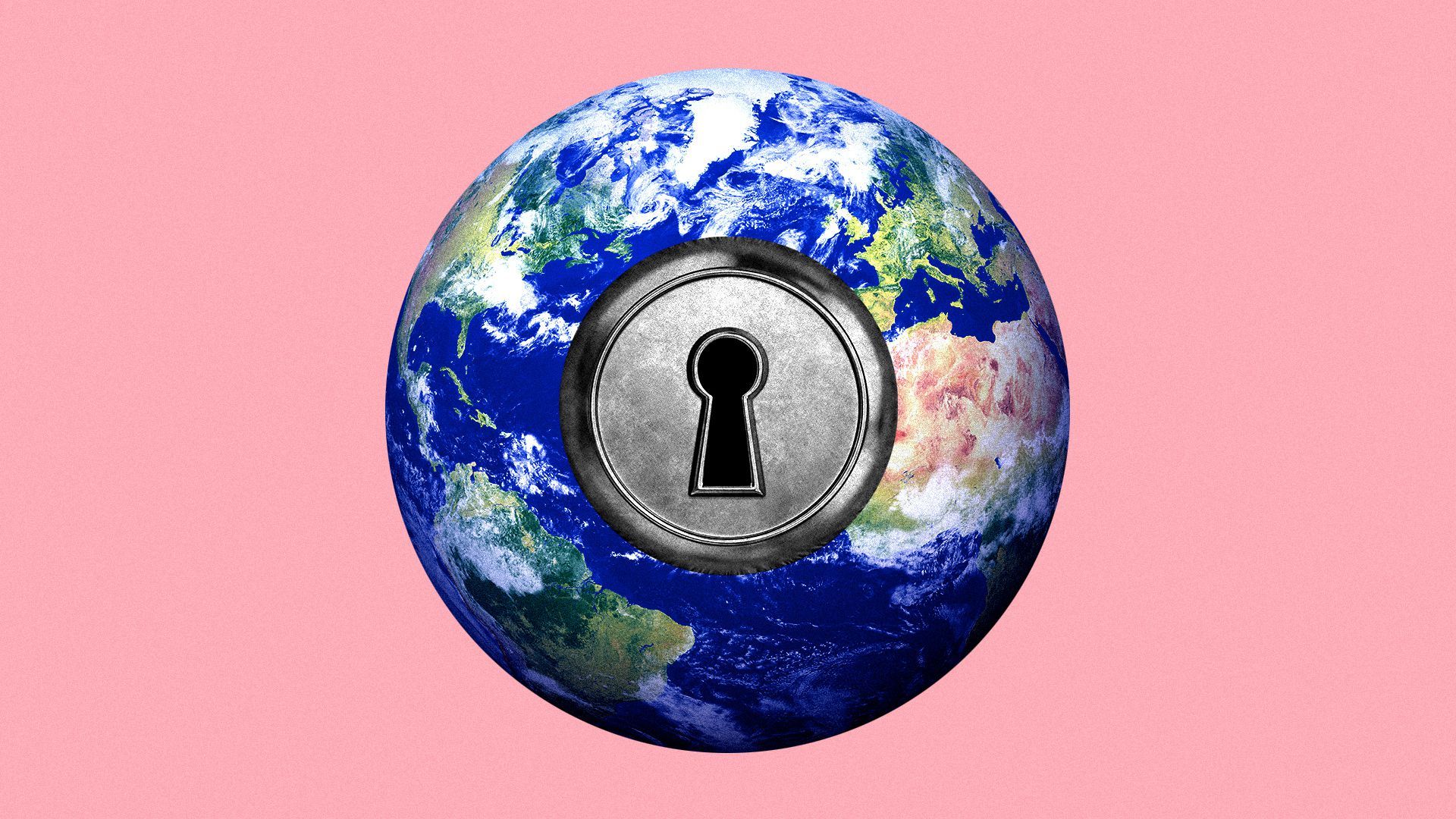EU advises member states on which tourists to admit as borders reopen
Add Axios as your preferred source to
see more of our stories on Google.

Illustration: Aïda Amer/Axios
Member states of the European Union should only allow tourists in from countries that can prove their coronavirus outbreaks are under control, the European Commission said in guidance released Wednesday.
The big picture: Countries reporting some of the highest coronavirus death tolls in Europe — the U.K., Italy and Spain — are taking different approaches in their phased efforts to reopen their economies, and will likely do the same with travel.
- Of note: If EU countries follow the guidelines, Americans would not be welcome as tourists — since deaths have continued to rise in the U.S. and testing is still not considered fully adequate. The State Department has advised Americans to avoid international travel.
- NIAID director Anthony Fauci has testified that he expects testing to be at an adequate level by the end of the summer or early fall.
- The White House declined to comment.
What they're saying: The core requirement that EU members should follow when allowing foreigners is epidemiological proof from their country that the spread of COVID-19 has "significantly decreased" and stabilized, according to the Commission.
- Hospitals must be able to handle tourists and locals in case of an infection spike.
- Local surveillance that monitors tourist activity should be in place.
- Contact tracing, which the EU has released separate guidelines for, should be robust and the gathered information should be shareable between countries.
What's happening: Spain and Italy began reopening their economies this month by emphasizing industry over retail in detailed plans. Both countries dealt with large-scale outbreaks before the U.K. and issued social distancing directives early on.
- In contrast, U.K. Prime Minister Boris Johnson's address on reopening the country was decried as confusing and vague, as he changed the country's message from "stay at home" to "stay alert" and offered few details — before releasing more extensive guidance the next day.
- Infections have plateaued in the U.K., while Italy is seeing a decrease and Spain has recorded a small uptick after a decline, according to leading models from the Institute for Health Metrics and Evaluation.
The bottom line: "Until a vaccine is available, the needs and benefits of travel and tourism need to be weighed against the risks of a resurgence of cases requiring a reintroduction of confinement measures," the EU's report says.
Go deeper: Coronavirus hits tourism spots, in before and after photos
